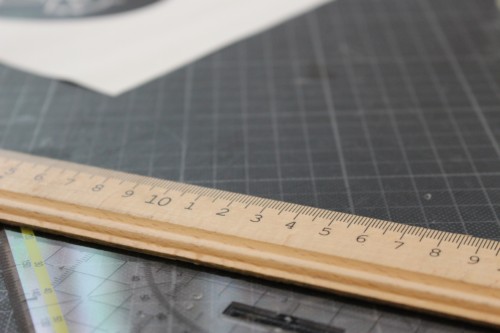
What do yardsticks have to do with impostor syndrome? A lot, I think.
Growing up, I was a straight A student. I THRIVED in an environment where I knew exactly what we were going to learn, what was expected of me, and I knew exactly where I stood. I always had a yardstick to measure myself and my performance by.
Ick. Just the fact that “measure myself” slipped into that sentence as I wrote it reveals how closely tied my identity was with how I did in school. You are not your grades! But that is a blog post for another day…
Anyway, to say I struggled in “real life” post school is an understatement. Not having that yardstick to measure by made me have to figure out for myself if I was doing well or not, and that just wasn’t satisfying. I couldn’t trust my own assessment. And therefore, I’ve had impostor syndrome my whole career.
I was that person who got excited by performance reviews because it felt like getting a grade. FINALLY I would find out if I was doing well, and get a list of things to improve on. I got my first 30/60/90 a couple jobs ago and I loved the idea, but it never got followed up on, and it wasn’t accurate in terms of what needed to be done anyway. I’ve been disappointed, it’s never been clearly laid out for me, and my reviews have never been very illuminating either (if I got them at all.)
I think school sets us up for impostor syndrome.
We are given a curriculum to follow and we are taught that the grade shows how well you’re doing. None of that exists in real life. The closest thing we have in product development to a curriculum is a roadmap and I don’t think I’ve ever seen one stay the same for an entire quarter (semester) and it’s shocking how often there aren’t defined metrics (grades) or ways to gather them (tests.) It can make it really hard to see if you’re making an impact.
The untold secret to professional life is that everyone is still figuring it out. Very few things are a sure thing, and there usually isn’t one right way to do anything. And if you’re any good- you’re going to feel impostor syndrome from time to time. In my case, most of the time.
So, now I embrace my impostor syndrome. I make it mean that I’m growing. I’m putting myself in a situation where I don’t know all of the answers, there’s some unknowns, I’m not comfortable. That’s where you grow.
Impostor syndrome is my new yardstick.

